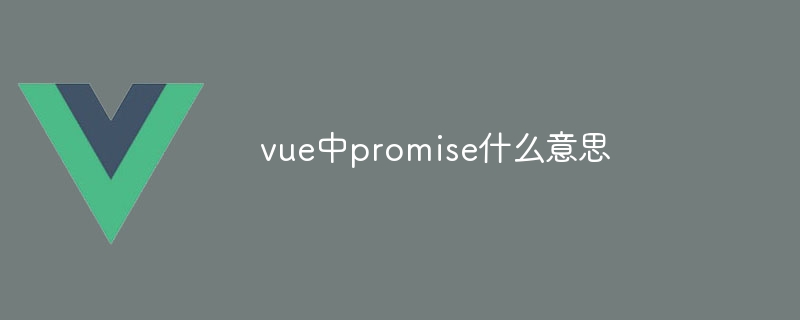
Promise in Vue.js represents the final result of an asynchronous operation, which can be in three states: Pending (pending), Fulfilled (successful), and Rejected (failed). Through the then() and catch() methods, you can handle successful and failed results respectively, and use the finally() method to execute regardless of the result. Promise supports chained calls and can handle multiple asynchronous operations in series. Vue.js provides async/await, Promise.all(), Promise.race() and other methods, making it easier for developers to wait for or handle Promis

The meaning of Promise in Vue
In Vue.js, Promise is a built-in class that represents the final completion or failure result of an asynchronous operation. Specifically, the Promise object represents the following:
1. The status of the asynchronous operation
2. Processing asynchronous results
Promise provides a unified way to process the results of asynchronous operations:
3. Chained calls
Promise supports chained calls, which allows developers to handle multiple asynchronous operations in a smooth manner. Each then() function returns a new Promise that represents the state of the next asynchronous operation.
4. Wait for Promise
Vue.js provides some methods to wait for Promise to complete, including:
Benefits of using Promise
Using Promise to handle asynchronous operations in Vue.js has the following benefits:
The above is the detailed content of What does promise mean in vue?. For more information, please follow other related articles on the PHP Chinese website!